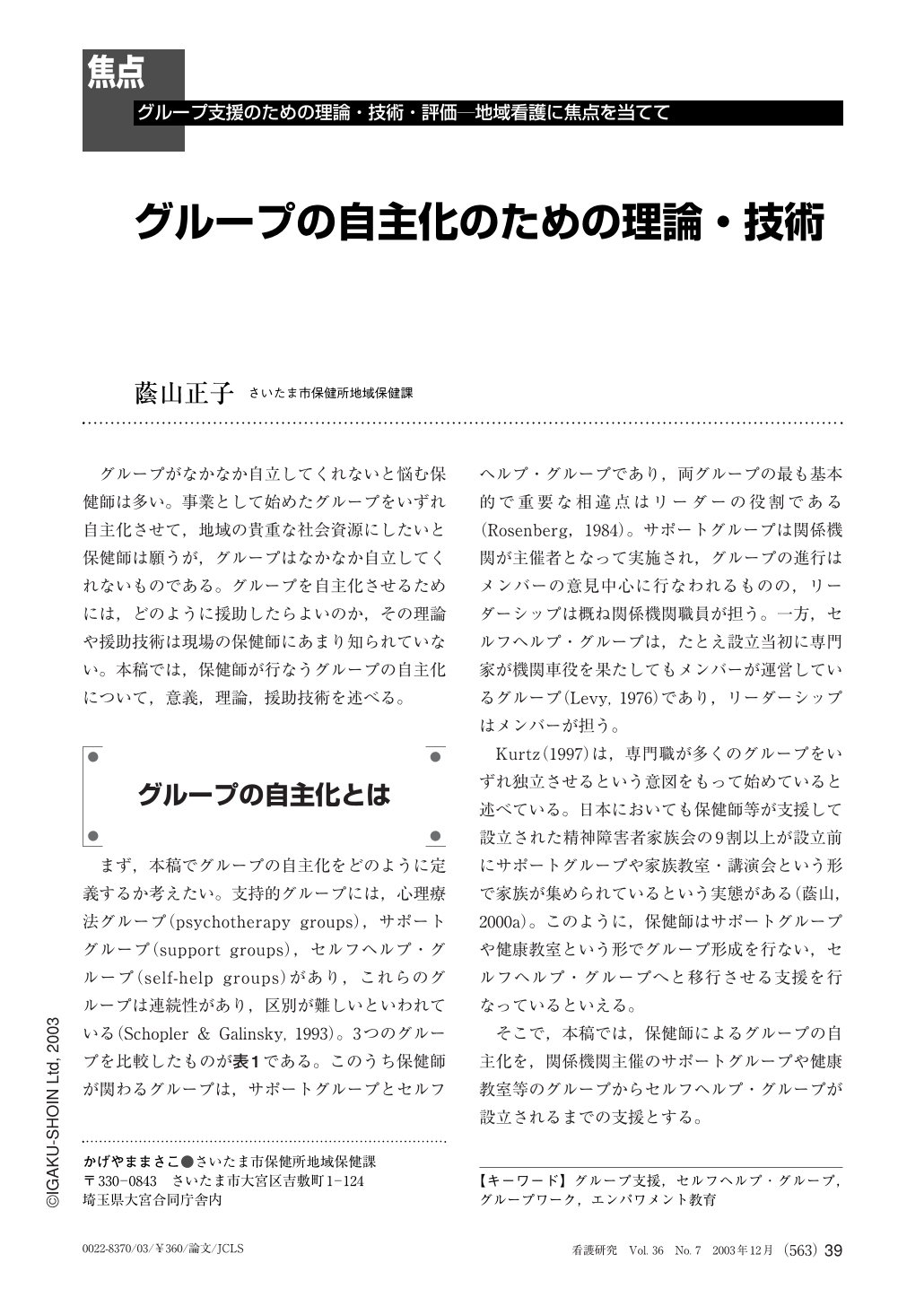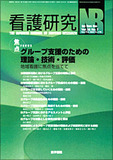Japanese
English
- 有料閲覧
- Abstract 文献概要
- 1ページ目 Look Inside
グループがなかなか自立してくれないと悩む保健師は多い。事業として始めたグループをいずれ自主化させて,地域の貴重な社会資源にしたいと保健師は願うが,グループはなかなか自立してくれないものである。グループを自主化させるためには,どのように援助したらよいのか,その理論や援助技術は現場の保健師にあまり知られていない。本稿では,保健師が行なうグループの自主化について,意義,理論,援助技術を述べる。
Public health nurses organize and coordinate health educational groups and support groups, by taking a leadership role. They are also involved in the changing process from these professional-led groups to peer-led groups, and finally to self-help groups, contributing to the community development. Theories and professional skills of their supportive efforts for the transition were divided into two categories ; those focused on groups and those focused on individuals. Theories and skills focused on groups included 1) the changing strategies from support groups to self-help groups as the final stage of group work, 2) the professional role in forming self-help groups, 3) the disengagement strategies as the final phase in community development process, and 4) the group-efficacy skill applied from the self-efficacy theory of Bandura. The former two theories were mainly produced in the discipline of the social work. Empowerment of individuals was adapted from Freire's original work, which was a contribution of education field. The conceptual framework in transitional stages is derived from social work, education and community development theories. These have been applied to public health nurses practice, which indicates that future research could be directed at developing theories that could be grounded within public health nursing practice.

Copyright © 2003, Igaku-Shoin Ltd. All rights reserved.


